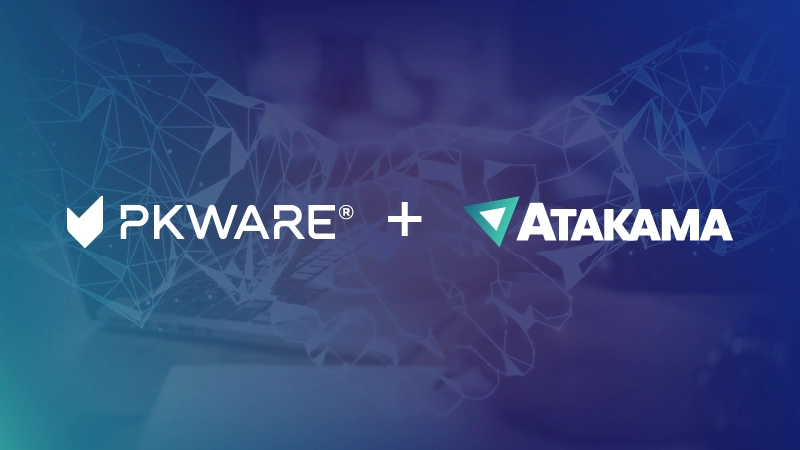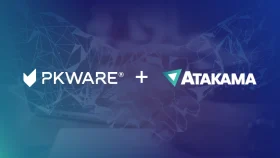Data Compliance is Good for Business

Businesses collect data. It’s just what they do. Data is part of every facet of running a business, from understanding what customers are looking for, to completing sales and services, to tracking trends within the organization to plan for the future. But there exist continuing concerns about data and how organizations use, store, and protect sensitive data. These concerns have given way to multiple data compliance mandates and regulations that are tied to both industries and geographic regions.
Data compliance does not have to apply directly to your specific business location to impact it. Consider the European Union’s General Data Protection Regulation (GDPR). Built to protect EU citizens, this mandate requires that any organization that deals with EU citizens’ data must protect that data according to GDPR regulations regardless of whether the organization itself is located in the EU. Similarly, California’s Consumer Privacy Act (CCPA) applies to any business in any state that collects, stores, and uses information about California residents.
Even industry-related data compliance mandates can extend beyond the initial target industry. The Trusted Information Security Assessment Exchange (TISAX) is an assessment and exchange mechanism for information security in the automotive industry. A general manufacturer who makes even the most basic part downstream for an automobile company needs to comply with TISAX in order to function in the European automotive arena, even if that organization does not consider itself an automotive manufacturing business overall.
Data Compliant Companies Win
Data privacy is not simply one more thing to check off the list. First, an organization must understand and accept that data privacy is a right. It’s not just about being in compliance.
Second, it’s important to note that data compliance is actually good for business.
This might seem counterintuitive at first. After all, data security tools can be expensive. And it can be difficult to prove ROI on cybersecurity simply for the fact that you’re spending money to ensure an event does not occur, and while estimates put the average cost of a data breach at $4.24 million, there’s not an easy way to estimate how much money a security event would cost your business specifically if it had occurred.
However, consider that data compliant companies win in some very specific areas:
- Strong data compliance gives customers confidence that any personal information they supply to your company will remain secure, which in turn builds brand loyalty.
- Full compliance will reduce the opportunity for bad publicity from a data breach (just check out our recent Monthly Breach Report).
- Job candidates are looking now more than ever for organizations that have a corporate code of ethics. Having this in place can help attract higher caliber employees.
- Data compliance is a best practice for every data-driven business, and can additionally enhance an organization’s bottom line.
The sooner a business adopts a privacy by design approach, the better. Privacy that is well-automated and seamlessly baked into company culture is painless, and can be a compelling selling argument in regard to other businesses and customers.
Compliance Is A Top Priority
When it comes to data compliance, organizations must be intentional in understanding what regulations they are subject to. A healthcare organization in California will need to comply with both HIPAA and CCPA—and if they take payment cards, PCI DSS as well. An online retailer that sells across the United States must consider data compliance for both PCI DSS and CCPA. Businesses that work with customers around the world will need to comply with CCPA and GDPR, as well as other geography-based compliance laws for countries such as Brazil, China, and Canada.
Compliance is also not a “one and done” approach. Most laws and mandates will require compliance certifications at specific intervals. And new privacy laws are cropping up every year. Five states have new comprehensive consumer privacy laws taking effect in 2023 alone: California, Virginia, Colorado, Utah, and Connecticut. India is currently collecting feedback on its proposed Digital Personal Data Protection Bill, and the bill could take effect within the next few years, impacting not only businesses located in India, but any organization that does business with Indian customers or organizations.
Data privacy culture is clearly a top priority for lawmakers around the world.
So How Is Data Privacy Good for Business?
Businesses need data to function. Extracting value from sensitive data while ensuring customers’ privacy is the ultimate goal, and that is achieved by sound data security practices that then breed strong data privacy outcomes. When privacy practice is in play, organizations can be confident that they are on the side of both the people and the business simultaneously, not sacrificing one for the sake of the other.
Maintaining data security and privacy is good for business. And doing so via a data protection platform such as PK Protect more specifically helps by:
- Future-proofing against evolving regulations. Stay compliant with current regulations and easily pivot to manage future regulations.
- Simplifying data security management. Reduce the complexity of data security enforcement with the help of automation to simplify protection.
- Letting sensitive data be safely accessed by employees across the organization. Role-based control ensures that employees see only what they need to when they access information to serve customers.
- Promoting a mature data privacy practice. Consolidate and standardized data protection policies and methods across technologies and systems.
- Protecting organizations from expensive data breaches. We know breaches are costly, both in monetary and non-monetary costs. Strong data protection helps prevent harm from coming to both consumers and company.
Data security and privacy doesn’t have to be a hindrance to your business. In fact, a comprehensive data discovery and protection solution can augment the success of your organization, resulting in positive business outcomes.
See how PK Protect can make data compliance and security good for your business. Request a free demo now.










